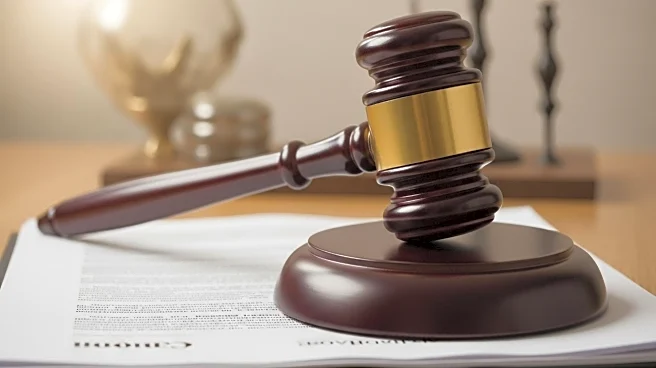What is the story about?
What's Happening?
Homeowners' Associations (HOAs) in North Carolina are governed by specific legal frameworks that dictate how amendments to their governing documents, such as Covenants, Conditions, and Restrictions (CC&Rs) and Bylaws, can be made. The North Carolina Planned Community Act and the North Carolina Condominium Act provide the procedural rules for amending these documents. For communities established after certain dates, these statutes outline requirements for notice, voting thresholds, and recording amendments. The process involves reviewing governing documents, drafting amendments, notifying members, voting, and recording approved changes. Legal counsel is often recommended to ensure clarity and compliance with state laws.
Why It's Important?
Amending HOA bylaws and covenants is crucial for adapting to new laws, homeowner preferences, and addressing outdated provisions. This process impacts community governance and can affect property values, resident satisfaction, and legal compliance. Proper amendments can enhance clarity and prevent disputes, while poorly executed changes may lead to legal challenges. Associations must navigate complex legal requirements to ensure amendments are enforceable and reflect the community's evolving needs. Successful amendments strengthen governance and preserve the integrity of the HOA, benefiting homeowners and maintaining community standards.
What's Next?
HOAs considering amendments must follow the outlined steps, including consulting legal counsel to draft clear and enforceable language. Associations should prepare for member meetings, ensuring adequate notice and transparent voting procedures. Once approved, amendments must be recorded with the Register of Deeds to ensure legal enforceability. Associations should maintain clear records of amendments for future reference and transparency. Ongoing legal compliance and community engagement are essential for successful governance and adaptation to changing needs.
Beyond the Headlines
The amendment process highlights the balance between legal requirements and community preferences. It underscores the importance of clear communication and legal guidance in maintaining harmonious community relations. The evolving nature of residential communities necessitates regular updates to governing documents, reflecting changes in laws and societal norms. This process also emphasizes the role of HOAs in shaping community standards and the potential for legal disputes if amendments are not carefully managed.















